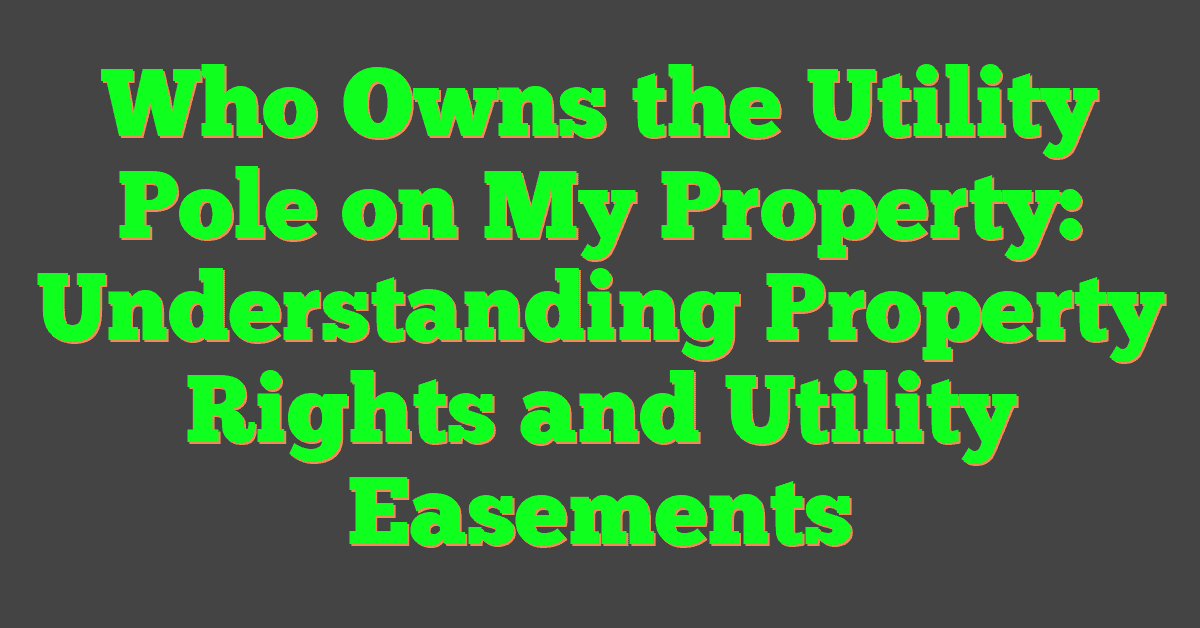Starting a business in the world of wholesale can be an exciting venture. Obtaining a wholesale license is a fundamental step for anyone looking to buy products in bulk directly from manufacturers or distributors and sell them to retailers or other businesses. With this license, you can purchase goods without paying sales tax and potentially sell them at a markup, enabling your business to flourish. It’s important to understand the various aspects of what a wholesale license is and the benefits it can offer to your business operations.

Navigating the application process for a wholesale license involves understanding government requirements and handling taxes and exemptions properly. This may also include determining whether you need additional permits or licenses based on the type of products you plan to sell. Establishing your business legally and preparing documentation ahead of the application can make the process smoother. Once your wholesale license is in hand, it paves the way for expanding your business reach, including to online sales platforms, providing ample opportunity for business growth.
Key Takeaways
- A wholesale license allows you to purchase goods in bulk without paying sales tax.
- Understanding and preparing for government requirements is crucial in obtaining a license.
- Having a wholesale license can help establish and expand your business operations.
Benefits of Getting a Wholesale License
https://www.youtube.com/watch?v=Aj45NdWLznw&embed=true
Obtaining a wholesale license can offer your business substantial fiscal advantages, from tax savings to bolstered profit margins. Here’s how you can leverage a wholesale license to your benefit.
Save on Sales Tax
With a wholesale license, you’re entitled to purchase goods without paying sales tax. This is because you’re expected to collect sales tax from your end customers. By leveraging this exemption, your initial product costs are reduced, allowing you to price your goods more competitively or enjoy higher margins.
Increase Profit Margins
Buying directly from manufacturers or distributors allows you to buy wholesale, usually at much lower prices than retail. This considerable reduction in cost leads to an increase in your profit margins when the goods are sold at retail pricing.
Expand Product Offering
A wholesale license equips you with the credibility to partner with large reputable distributors and manufacturers, which can expand your product offering. You’ll gain access to a broader range of products and the chance to offer a more diverse inventory to your customers.
Remember, each of these benefits contributes to the main goal of enhancing the economic health of your business.
Understanding the Basics of Wholesale Licensing
https://www.youtube.com/watch?v=ckNtgU4S6KY&embed=true
In venturing into the world of bulk distribution, grasping the essentials of a wholesale license equips you to bridge the gap between manufacturers and the retail market efficiently.
What Is a Wholesaler?
A wholesaler is a critical link in the supply chain, acting as an intermediary between manufacturers and retailers. As a wholesaler, you purchase large quantities of goods directly from manufacturers at reduced prices. Instead of selling these products directly to consumers, you sell them to retailers, other wholesalers, or even directly to businesses depending on your market strategy.
Retail vs. Wholesale
Retail: This refers to the sale of goods or services directly to consumers. Retail transactions generally involve smaller quantities at higher per-unit prices. As a retailer, you’re the final step in the supply chain before products reach the end-users — the consumers.
Wholesale: In contrast, wholesale involves selling goods in large volumes, often at lower unit costs, to retailers or other merchants who then sell to consumers. As part of your wholesale business, obtaining a wholesale license is essential. This license allows you to make tax-exempt purchases from manufacturers. It is crucial to your legitimacy and ability to operate within the legal boundaries of trade.
In summary, your wholesale business acts as the vital conduit, leveraging a wholesale license to facilitate the cost-effective flow of products from the manufacturer to the retail shelves, ensuring retailers have the inventory they need to satisfy the demands of the end consumers.
Preparing for the Application Process
https://www.youtube.com/watch?v=aVnUjAGOJYg&embed=true
Before you apply for a wholesale license, getting your business’s legal structure in order is essential. This includes registering your name, choosing your entity, and understanding the implications of each decision relating to taxes and liabilities.
Determine Your Legal Structure
Identifying the legal entity under which your business will operate is crucial. Your choice—be it a sole proprietorship, partnership, LLC, or corporation—will affect your business liability, tax obligations, and the complexity of the application process for your wholesale license.
Register Your Business Name
If your business name differs from your personal name, you will need to file a “Doing Business As” (DBA) name. This is especially pertinent if you’re applying as a sole proprietorship or partnership where the default business name is your full legal name or that of you and your partners.
Applying as a Sole Proprietorship or Partnership
For sole proprietorships and partnerships, the application process is typically less complex. You won’t usually need to provide a lot of corporate documents. However, don’t forget to register your DBA if you’re operating under a trade name.
LLC, Corporation, and Other Entities
If you’re establishing an LLC or a corporation, the process involves more steps, such as creating articles of organization or incorporation. These entity types provide different tax and liability benefits but require a more detailed application process for your wholesale license. Ensure your business is properly registered with the state and that you understand the additional paperwork required for these structures.
Navigating Government Requirements
Before you dive into the world of wholesale, understanding the intricacies of government requirements is crucial. From acquiring your EIN to state and federal licensing, and special permits for certain goods, here’s how to navigate the bureaucratic waters.

Acquiring an Employer Identification Number (EIN)
Your first step is to obtain an Employer Identification Number (EIN) from the IRS. Think of it as a social security number for your business. This federal tax identification number is necessary for business registration, tax filing, and is often required when applying for permits and licenses. To get your EIN, submit an application through the IRS website.
State and Federal Licensing
You’ll need to determine if your business requires state, federal, or both types of licenses. A general business license from your state is a must—which can usually be obtained through your state’s tax office. For federal licensing, your business activities, such as dealing with alcohol, aviation, firearms, or ammunition, might necessitate a specific federal license.
State Licensing: Contact your state’s tax office to apply for a sales tax license, allowing you to legally collect sales tax from customers.
Federal Licensing: If you’re in an industry regulated by federal laws handling items like alcohol or firearms, additional federal permits will apply.
Special Permits for Specific Industries
Certain industries require special permits. If you plan to distribute alcohol, you’ll need a permit from the Alcohol and Tobacco Tax and Trade Bureau. Similarly, aviation and firearms businesses have government-regulated permissions, which are issued by their respective federal agencies. Always verify industry-specific requirements to remain compliant and legal in your operations.
The Complete Application Process

When seeking a wholesale license, you’ll embark on a structured process that involves gathering critical paperwork, submitting various application forms, and acquainting yourself with the associated fees and typical waiting times. Each step plays a vital role in ensuring your business is ready to operate legally and efficiently.
Gathering Necessary Documentation
Before diving into the application forms, your first order of business is to amass all necessary documentation. This includes registering your business, which you can do by contacting the IRS for a Federal Tax Identification Number or Employer Identification Number (EIN). Equally important is obtaining a business license that confirms the legality of your enterprise’s operations. These documents will be essential for the next steps of the process. For specific details on the documentation required, HowStuffWorks provides a helpful overview.
Submitting Application Forms
With your paperwork in hand, you’re ready to submit your application forms. The centerpiece here is the wholesale license application, which you’ll typically file with your state’s department of revenue or an equivalent body. Also, if your business sells tangible goods, applying for a sales tax permit is usually a necessary step. This allows you to charge sales tax on the products or services you offer. For a clear breakdown of the application steps for your state, BlueCart offers guidance to streamline the process.
Understanding Fees and Waiting Times
As with most bureaucratic procedures, there are fees associated with getting a wholesale license, which can vary depending on your state and industry. These can be one-time fees or periodic renewals. Additionally, brace yourself for waiting times—the period from when you submit your application until you receive your license isn’t instantaneous. The processing time can vary widely, so it’s wise to apply well in advance of when you’ll need to begin operations. The 2023 Guide at AtOnce can help you understand what to expect in terms of fees and waiting periods.
Handling Taxes and Exemptions

When starting a wholesale business, it’s crucial to understand and manage the various tax responsibilities you’ll face. Specifically, registering for sales tax, leveraging exemptions for resellers, and maintaining overall tax compliance are key areas where you should focus your attention to operate legally and efficiently.
Registering for Sales Tax
To begin conducting business, you need to register for a sales tax ID. This is typically done through your state’s department of revenue. With your Federal Tax Identification Number (EIN) in hand, you can apply for a sales tax license, allowing you to collect tax on sales when required.
Tax Exemptions for Resellers
As a wholesaler, you may be eligible to purchase goods tax-exempt for resale purposes. To do this, you’ll provide your sales tax ID and a resale certificate to suppliers, which assures that you are buying the goods for resale and not for your own use. Different states have varying rules, so be sure to check with your local authorities about specific exemptions available to you.
Maintaining Tax Compliance
Maintaining tax compliance means keeping accurate records, understanding when you should collect sales tax, and knowing when your products might be exempt from sales tax. Stay informed about current tax laws, and file your taxes accurately and on time to avoid penalties. It’s wise to consult with a tax professional if you’re unsure about the tax regulations pertinent to your wholesale business.
Establishing Your Business Operations
Before you dive into the world of wholesale, it’s crucial to solidify your operational foundation. Carefully selecting where you’ll operate, building robust ties with your suppliers, and efficiently managing B2B transactions will set the stage for your success.

Choosing Your Location
Your business’s location is more than just an address; it’s where opportunity meets logistics. When selecting a location, consider proximity to manufacturers and ease of distribution to wholesalers or customers. High traffic areas may offer more visibility, while a spot closer to suppliers can cut down on shipping times and costs.
Building Relationships with Manufacturers and Suppliers
Success in wholesale is rooted in strong relationships with manufacturers and suppliers. Start by attending industry events and trade shows, and don’t shy away from reaching out directly. Aim to understand their challenges and how you can offer solutions. Trust and reliability are your currencies here.
Setting Up B2B Payments and Logistics
Effective B2B payments and logistics systems are the lifeblood of wholesale operations. Choose a payment system that’s reliable and easy for other businesses to use. For logistics, whether you’re handling it in-house or outsourcing, ensure that your system is capable of scaling with your business and meeting delivery expectations.
Expanding to Online Sales
In the digital age, expanding your wholesale business to include online sales can significantly increase your reach and revenue. Here’s how you can transition smoothly from traditional wholesaling to mastering ecommerce sales.
Starting an Ecommerce Business
To begin selling your wholesale products online, you need to set up an ecommerce business. This entails registering your company if you haven’t already and ensuring compliance with all legal requirements. According to Niche Pursuits, choosing a business structure and name, as well as obtaining a wholesale license, are foundational steps. Additionally, securing your Federal Tax Identification Number is a must for tax purposes.
Utilizing Online Marketplaces
Online marketplaces like Amazon or eBay can be a powerful avenue for wholesaler businesses to reach a broader audience. These platforms often have built-in customer bases and can handle much of the heavy lifting when it comes to logistics. You’ll want to research the specifics of each marketplace, as some may have particular requirements or fees. To operate effectively on these platforms, you may need to obtain additional permits, like a seller’s permit, to handle sales taxes as mentioned on NerdWallet.
Leveraging Ecommerce Sales Platforms
For a more branded experience, consider leveraging ecommerce sales platforms such as Shopify or WooCommerce. These platforms will give you more control over your store’s design and customer journey. As highlighted by BlueCart, this approach helps establish your business as a credible dealer and manage your online presence effectively. You’ll also want to explore various digital marketing strategies to drive traffic to your store and generate sales.
Tips for Success
To thrive in the wholesale business, it’s crucial to focus attention on careful planning, building robust customer relationships, and selecting the right team and business partners. Lay the groundwork for success through meticulous strategy, fostering a loyal customer base, and smart hiring decisions.
Effective Planning and Strategy
Developing a solid business plan is the cornerstone of success for your wholesale business. You’ll want to outline clear goals and objectives to steer your venture in the right direction. To ensure your planning pays off, analyze your target market carefully and identify what sets your offerings apart. An effective strategy might include diversifying your products to optimize profit margins.
Building a Strong Customer Base
Your customers are the lifeblood of your business. Cultivate lasting relationships by consistently delivering value and maintaining reliable service. This could involve personalized follow-ups or providing volume discounts to repeat buyers. Remember, a strong customer base isn’t only about numbers – it’s about the depth of the connections you foster with each client.
Hiring Employees and Partners
For small businesses, the people you hire can make or break your business. It’s vital to bring on employees who are passionate and align with your business’s values. Likewise, when seeking business partners, opt for those who complement your strengths and weaknesses and share your vision for the company. A cohesive team can drive innovation and propel your business forward.




